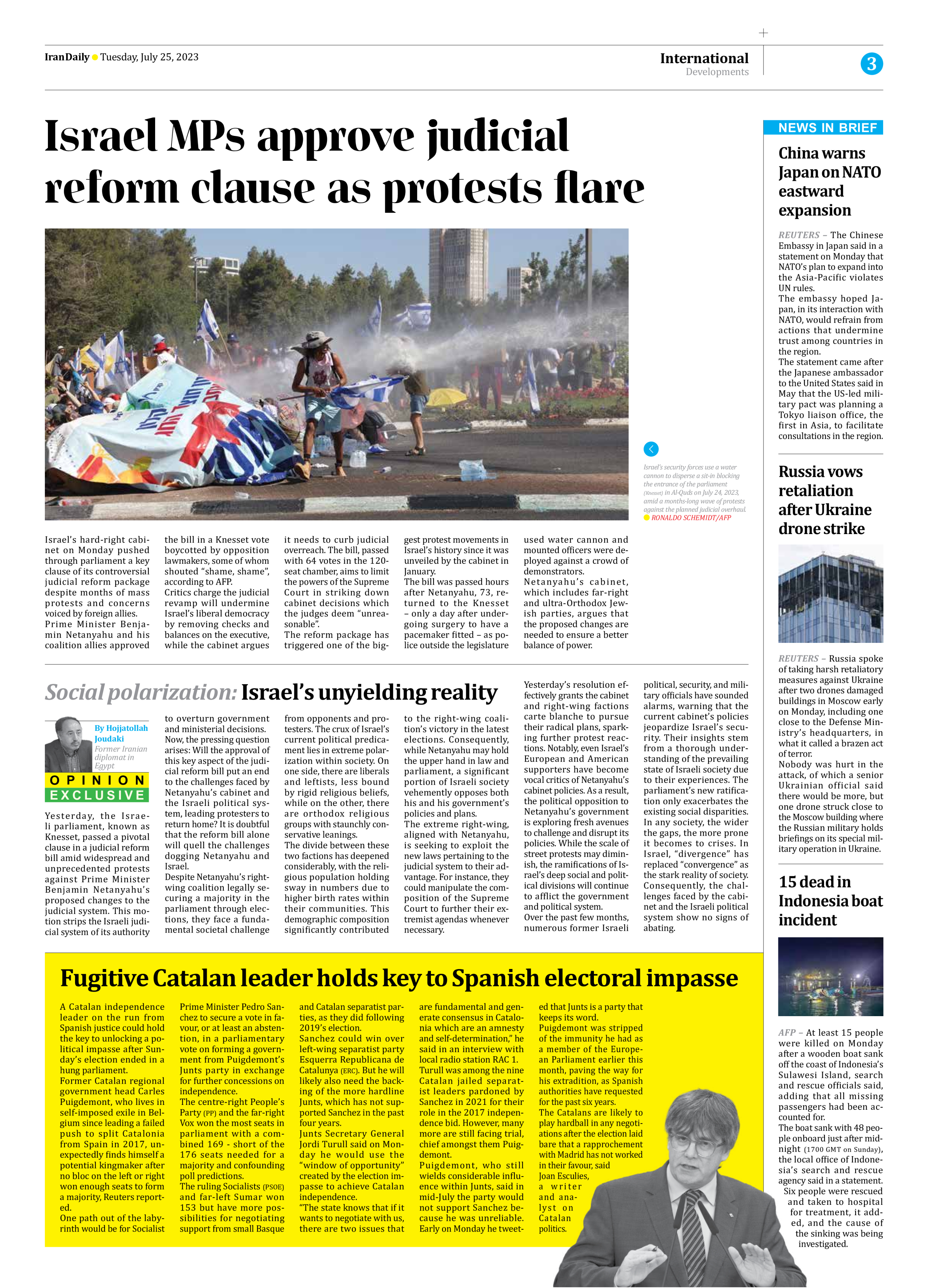
Social polarization: Israel’s unyielding reality
By Hojjatollah Joudaki
Former Iranian diplomat in Egypt
Yesterday, the Israeli parliament, known as Knesset, passed a pivotal clause in a judicial reform bill amid widespread and unprecedented protests against Prime Minister Benjamin Netanyahu’s proposed changes to the judicial system. This motion strips the Israeli judicial system of its authority to overturn government and ministerial decisions.
Now, the pressing question arises: Will the approval of this key aspect of the judicial reform bill put an end to the challenges faced by Netanyahu’s cabinet and the Israeli political system, leading protesters to return home? It is doubtful that the reform bill alone will quell the challenges dogging Netanyahu and Israel.
Despite Netanyahu’s right-wing coalition legally securing a majority in the parliament through elections, they face a fundamental societal challenge from opponents and protesters. The crux of Israel’s current political predicament lies in extreme polarization within society. On one side, there are liberals and leftists, less bound by rigid religious beliefs, while on the other, there are orthodox religious groups with staunchly conservative leanings.
The divide between these two factions has deepened considerably, with the religious population holding sway in numbers due to higher birth rates within their communities. This demographic composition significantly contributed to the right-wing coalition’s victory in the latest elections. Consequently, while Netanyahu may hold the upper hand in law and parliament, a significant portion of Israeli society vehemently opposes both his and his government’s policies and plans.
The extreme right-wing, aligned with Netanyahu, is seeking to exploit the new laws pertaining to the judicial system to their advantage. For instance, they could manipulate the composition of the Supreme Court to further their extremist agendas whenever necessary.
Yesterday’s resolution effectively grants the cabinet and right-wing factions carte blanche to pursue their radical plans, sparking further protest reactions. Notably, even Israel’s European and American supporters have become vocal critics of Netanyahu’s cabinet policies. As a result, the political opposition to Netanyahu’s government is exploring fresh avenues to challenge and disrupt its policies. While the scale of street protests may diminish, the ramifications of Israel’s deep social and political divisions will continue to afflict the government and political system.
Over the past few months, numerous former Israeli political, security, and military officials have sounded alarms, warning that the current cabinet’s policies jeopardize Israel’s security. Their insights stem from a thorough understanding of the prevailing state of Israeli society due to their experiences. The parliament’s new ratification only exacerbates the existing social disparities. In any society, the wider the gaps, the more prone it becomes to crises. In Israel, “divergence” has replaced “convergence” as the stark reality of society. Consequently, the challenges faced by the cabinet and the Israeli political system show no signs of abating.







